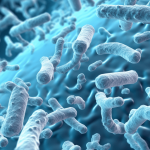Are Dandelions Poisonous?
When I first heard about dandelions, I was curious if they were poisonous or not. Many plants can be harmful to people or animals, and it’s essential to be knowledgeable about them before exploring their uses. Dandelions, with their vibrant yellow flowers, are found in many parts of the world and have been utilized as food and medicine throughout history.
Upon researching, I discovered that dandelions are not poisonous. In fact, they offer various health benefits such as providing a rich source of beta carotene and polyphenol compounds, both of which may neutralize harmful free radicals and protect against chronic disease [source]. They can be consumed moderately in different forms, such as leaves, roots, and flowers, and have been widely used in traditional herbal medicine [source].
However, there are a few points of caution to consider. While dandelions are safe to eat in moderation, repeated consumption or the consumption of supplements containing dandelion may have adverse health effects on people with specific medical conditions or those taking certain medications, such as blood thinners, lithium, or diuretics [source]. Additionally, some people may experience allergic reactions to dandelions, so it’s crucial to be cautious when trying them for the first time.
Dandelion Overview
In this section, I will provide a brief overview of dandelions, including their botanical description, key components, and uses.
Botanical Description
Dandelions (Taraxacum officinale) are flowering plants in the daisy family, and they are characterized by their bright yellow flowers. These plants are native to Europe but have spread to North America and other parts of the world. Dandelions are considered a herb and can be found in lawns, meadows, and other open areas.
The botanical structure of dandelions consists of a rosette of leaves at the base, a taproot that penetrates deep into the soil, and a hollow stalk supporting the flower head. Each flower head is actually made up of numerous tiny individual flowers called florets.
Key Components
Every part of the dandelion plant, from the roots to the flowers, is packed with nutrients. They are an excellent source of vitamins A, C, and K, and provide important minerals such as potassium, calcium, and iron. Additionally, dandelions contain fiber and various antioxidants, which contribute to their health benefits.
Uses
I have come to learn that dandelions are not poisonous and have various uses in both culinary and medicinal fields. The leaves can be eaten raw or cooked, and are commonly added to salads, soups, or stir-fries. The roots can be dried and ground into a coffee substitute or used as a base for herbal teas. Furthermore, people have been making wine from dandelion flowers for centuries.
Medicinally, dandelions have been used to treat various ailments, such as infections or digestive issues, although scientific evidence supporting these uses is limited. However, with their high nutritional value and antioxidant properties, adding dandelions to my diet could potentially provide some health benefits.
Are Dandelions Poisonous?
As a plant enthusiast, I’ve often wondered whether dandelions are poisonous or not. After researching, I found that dandelions are not poisonous, and many people consume them without experiencing any issues. However, it’s important to be aware of any toxins present in dandelions and consider potential allergic reactions before consuming them.
Toxins Present in Dandelion
While dandelions are not poisonous, they do contain some compounds that could cause problems if consumed in large quantities. For example, dandelion stalks contain latex, which is rich in beta-lactoglycerol. Additionally, the leaves of dandelions contain oxalates, which, if consumed in excess, can cause damage to the body.
Human Consumption Considerations
Considering that dandelions are safe to eat in moderation, they can be a nutritious addition to one’s diet. In fact, dandelions are a rich source of beta-carotene and polyphenol compounds, which can help neutralize harmful free radicals and protect against chronic diseases. However, people with diabetes or those taking certain medications, such as blood thinners, lithium, or diuretics, should be cautious when consuming dandelions, as they may cause health issues.
Allergic Reactions
While most individuals can consume dandelions without problems, some people may experience allergic reactions. According to the Northern New England Poison Center, these reactions could cause health problems for certain individuals. Therefore, it’s essential to be aware of any personal allergies or sensitivities before incorporating dandelions into one’s diet.
Effects on Pets and Animals
Dandelion Consumption by Pets
In my experience, dandelion consumption by pets, particularly dogs and cats, does not pose any significant health risks. In fact, dandelions are not poisonous to our furry friends at all. According to sources like Pango Pets and A-Z Animals, dandelions can offer some health benefits as they contain vitamins, minerals, and antioxidants that can contribute positively to the well-being of our pets.
My research shows that dandelion blooms can boost the immune system due to their high levels of antioxidants. Additionally, the leaves are nutrient-dense, while the roots help improve liver function. Thus, if my dog or cat comes across dandelions during their outdoor adventures, I wouldn’t worry about it being toxic to them.
Dandelion Consumption by Livestock
As for livestock, I’ve found that dandelion consumption is generally safe and can provide additional health benefits. The nutritional content of dandelions can be beneficial for animals like cows or goats, as it may improve milk production, bone health, and overall well-being. Furthermore, dandelions are a natural source of fiber and beneficial nutrients that can support the digestive health of these animals.
Dandelions are not only non-toxic, but they also serve as a source of forage for livestock. Grazing animals like sheep, horses, and cows can benefit from consuming the plant as it grows abundantly in pastures and lawns. In fact, I often notice that these animals commonly eat dandelions during their grazing sessions.
Overall, my pets and the animals around me can safely consume dandelions without any issues. Their non-toxic nature and various health benefits make dandelions a natural, nutritious addition to their diets.
Safe Dandelion Use and Handling
I’ve found that many people wonder if dandelions are poisonous. Thankfully, I discovered that they’re not. In fact, they can be consumed in various ways, and dandelions have a long history of use in traditional herbal medicine (Jacks Of Science). Here, I will discuss some culinary and medicinal uses of dandelions and precautions to consider when handling them.
Culinary Uses and Precautions
Dandelions can be eaten in moderation, and many people incorporate them into their diets without any problems (New Health Advisor). I like using dandelion leaves in salads or as a side dish, especially when they’re young and tender. You can also eat the roots and flowers of the plant.
When I’m preparing dandelions for culinary use, I make sure to wash them thoroughly. This ensures that any pesticides, dirt, or insects are removed before consumption. Additionally, it’s important to be aware of any allergies you may have to dandelions, as some people may experience a reaction when consuming the plant.
Medicinal Uses and Side Effects
While researching the medicinal uses of dandelions, I learned that they have been used as a natural remedy for various conditions. Dandelions have been used to treat tonsillitis, bladder infections, upset stomach, constipation, and arthritis pain (Drugs.com). However, it’s crucial to note that these uses haven’t been proven with research, and it’s not guaranteed that dandelions are effective in treating any medical conditions.
Before using dandelions for medicinal purposes, it’s important to consult with a healthcare professional. While dandelions are generally safe when consumed in moderate amounts, it’s always best to be cautious and get advice from an expert.
Conclusion
In my research, I found that dandelions are not poisonous. In fact, they offer numerous health benefits and can be safely consumed by both humans and animals. The leaves, roots, and flowers of the plant are all edible and have been used in traditional herbal medicine for centuries (Jacks Of Science).
As a rich source of beta carotene and polyphenol compounds, dandelions can help neutralize harmful free radicals and protect against chronic diseases (Healthline). They also contain anti-inflammatory properties that can provide further health benefits. However, it’s important to note that some people may have allergic reactions to dandelions, or experience health problems if they have pre-existing medical conditions or are taking certain medications (Northern New England Poison Center).
Overall, my findings show that dandelions are not only safe to consume but can also offer health benefits when eaten in moderation. So, the next time I come across a field of dandelions, I will feel confident knowing that they are not dangerous and can even be a nutritious addition to my diet.








